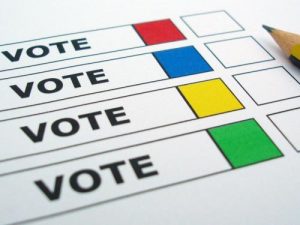Commodification and Power in Politics
Its hard to say what type of data is the most valuable when all data is valuable in some way or another. But, If I had to pick, I’d say the most valuable type of data is demographic data. This data gives companies and services the ability to predict a wide variety of things about a certain individual. Data on individuals that can predict whether or not they will vote for a certain political party can be particularly valuable. As an example, I am thinking back to one of the videos that was shown by the Predictive Analytics group. This video showed how information compiled such as whether or not you are a pet owner or what type of car you drive can make you a target for a particular political party. Your choice on who to vote for in a political election seems as though it should be something truly personal, but with the use of big data it has become largely impersonal. How can we trust what we are being shown on the Internet when it could be catered to us based on the specific data that has been collected?
If I could own this data myself, I see many possibilities that I would be given. Demographic data can be useful for reasons other than politics as well. I think this seems justified if the data is not being collected in an unclear, roundabout way. Although, many of the companies that have access to this data are using it in ways that have not been disclosed.
I think the apps and services that are getting the most out of my electronic activity are Amazon and other similar online shopping services. From buying one thing, the company can instantly suggest other things I may be interested in buying. And often, their algorithms are correct. Even if I may not “need” the item they recommend, I feel compelled to buy it in some way or another. Maybe it is directly related to or compliments an item I have recently bought. The value of this data production is simply that businesses are able to make more profit by doing this to me, and other users alike. The techniques and algorithms that they use have made them very successful.
As for your question on considering downsides, I agree that for some people, knowing about this collection of polling data might change their opinions and therefore change the information people give out.

 Previous Post
Previous Post
I could definitely see how data related to political parties can be really valuable. Given that there are already issues regarding the accuracy of poles, both the electoral system as well as candidates themselves would probably really benefit from something like this. Of course there could be some downsides, such as if the public was aware of polling data and knew it was accurate, couldn’t that change their opinions?
Also this blog is a little on the short side, please expand on some of the ideas here in order to meet the word limit.